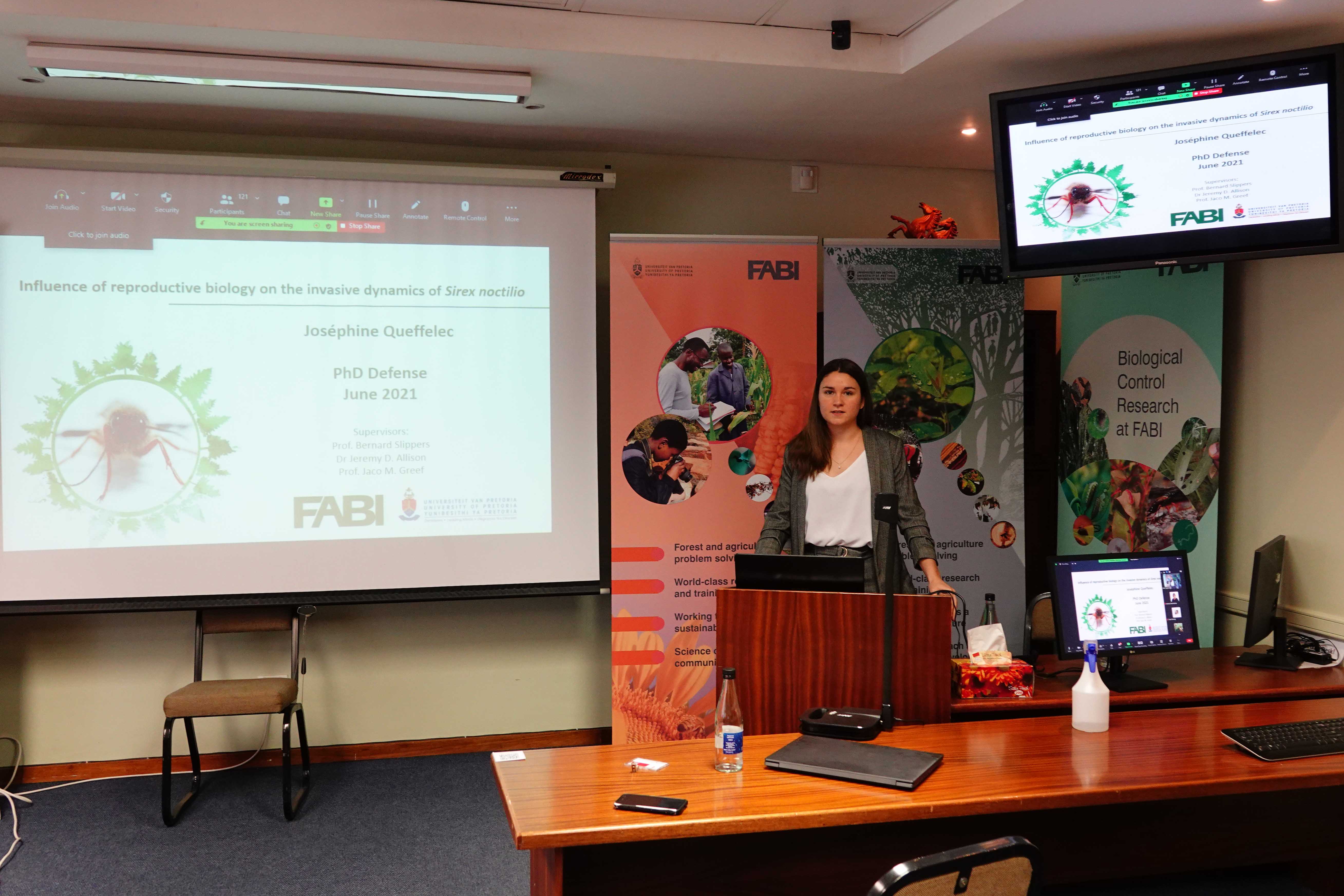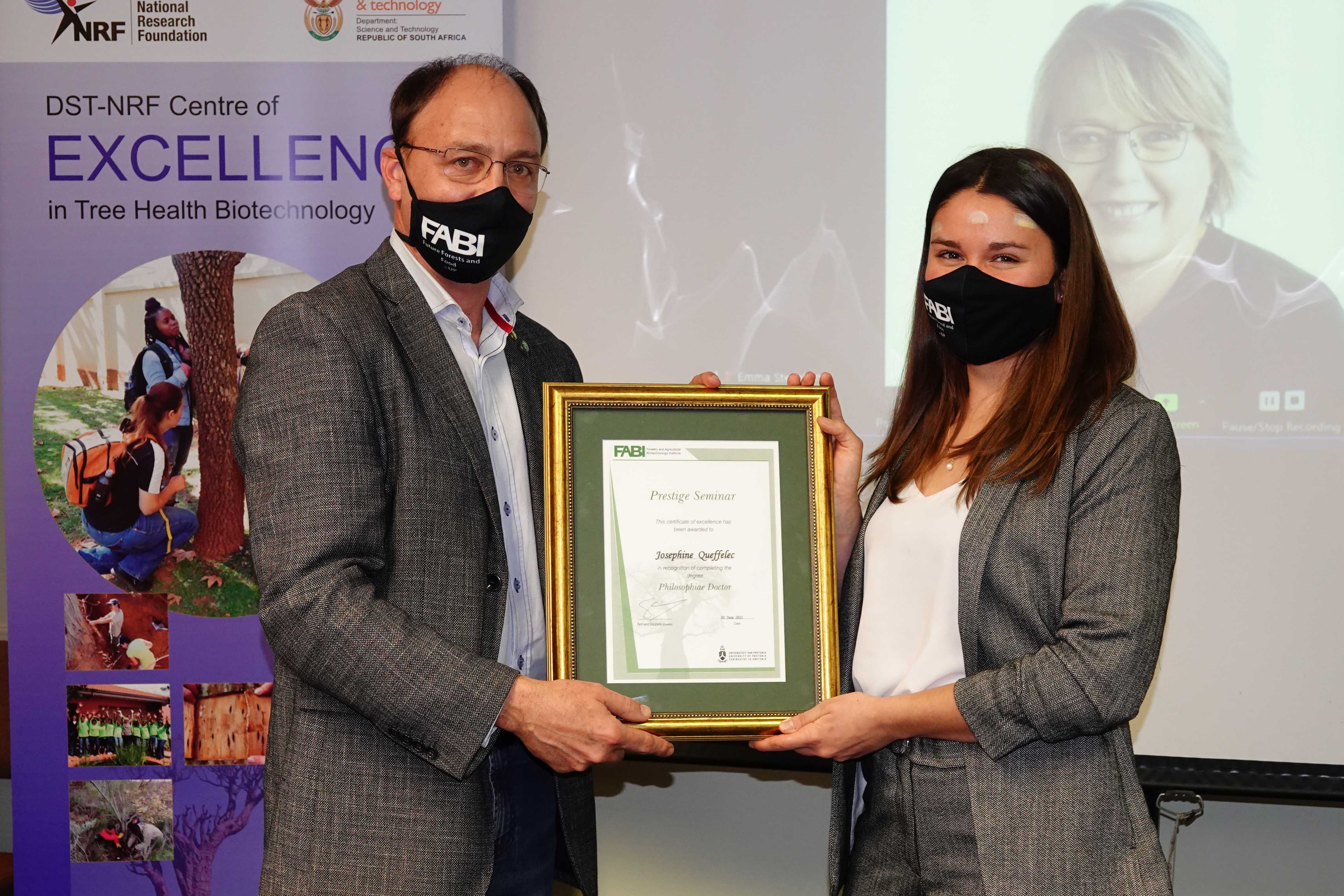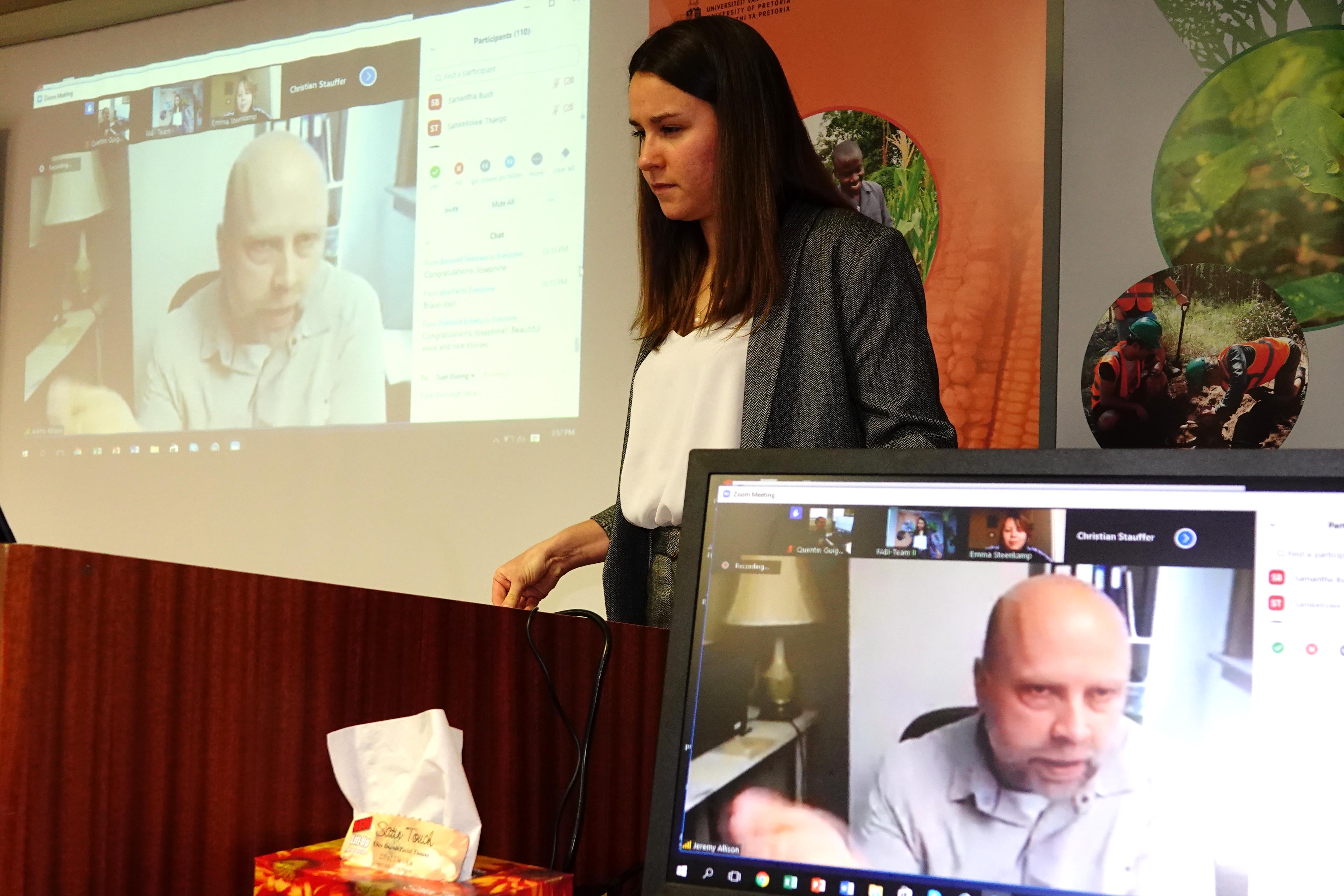Celebrating Josephine Queffelec’s Prestige Seminar 2021-07-12
FABI celebrated the completion of Josephine Queffelec’s PhD with her Prestige Seminar “Influence of reproductive biology on the invasive dynamics of Sirex noctilio” on 30 June. Her PhD was completed under the supervision of FABI Director Prof. Bernard Slippers, Prof. Jeremy Allison of Natural Resources Canada, and Prof. Jaco Greeff of the Department of Biochemistry, Genetics and Microbiology at the University of Pretoria. Josephine’s examiners were Prof. Christian Stauffer of the Institute for Forest Entomology at the University of Natural Resources and Life Sciences, in Vienna, Austria and Dr Zee Ahmed of the Subtropical Insects and Horticulture Research Unit at the US Horticultural Research Laboratory in Florida, USA. Her internal UP examiner was Prof. Robin Crewe.
Professor Slippers said that it was a special journey to walk with such a talented student as Josephine, describing her as “fearless and ready to tackle complex problems”. Josephine is also well known in the Institute as the winner of the FABIan of the Year Award, an enthusiastic participant in all FABI activities, including being a multiple winner of the Best Dressed Award at Spoof.
The woodwasp, Sirex noctilio, is an invasive species and a pest of pine plantations in the southern Hemisphere. Josephine studied aspects of the reproductive biology of the wasp, such as changes in sex ratio over time, effect of age and size on mating success, and the potential influence of bacterial reproductive parasites in S. noctilio. It was found that after introduction in the summer rain fall regions of South Africa, populations of S. noctilio exhibited low levels of genetic diversity, leading to the production of diploid males. Female woodwasps also showed relatively low levels of mating success and mated females invested more in sons than in daughters. Josephine’s study also showed that that both size and age influence motivation to mate and mate choice in both male and female S. noctilio. The study’s results also suggest the presence of male mate choice in this species. Finally, Josephine showed that S. noctilio is unlikely to be infected with Wolbachia in South Africa, but that the genome of the wasp contains pseudogenes from previous infections by the bacterial symbiont. This thesis illustrates the importance of understanding reproductive biology for the monitoring and management of invasive species and for the implementation of biological control programs using insects as biocontrol agents.




